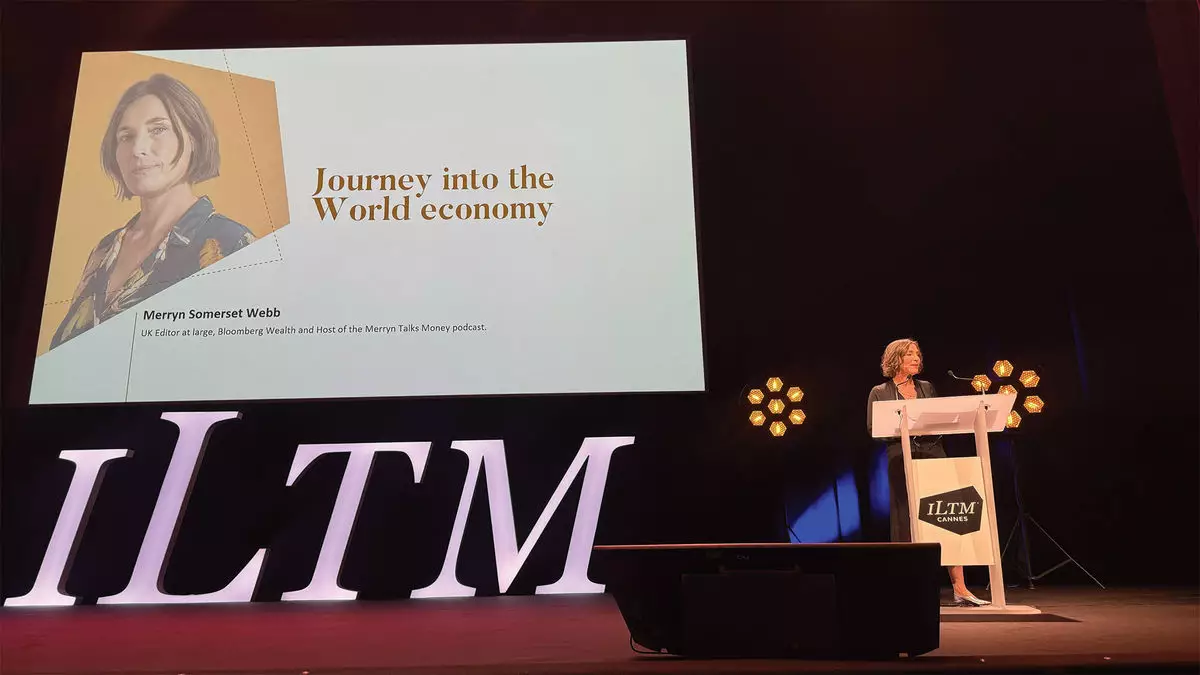The luxury travel sector has long enjoyed a period of robust growth, yet a recent gathering of industry experts at ILTM Cannes raises questions about the sustainability of this boom. Despite facing significant global challenges—including geopolitical tensions and shifting demographics—speakers at the event expressed optimism about the future. Merryn Somerset Webb, the U.K. editor at large for Bloomberg Wealth, highlighted a variety of pressing issues that could impact the industry, such as increasing defense spending and aging populations. However, the prevailing sentiment among attendees was one of resilience, with many pointing to specific trends that could serve as catalysts for continued expansion.
Webb emphasized that for those who are observant, the current global climate presents numerous factors that foster uncertainty. Yet, in contrast to these challenges, the luxury travel industry could be buoyed by transformative shifts in consumer behavior in the aftermath of the pandemic, coupled with an unparalleled transfer of wealth from older generations to younger individuals.
The Great Wealth Transfer: A Driving Force for Luxury
One of the most significant observations from the forum was Webb’s identification of a staggering $72 trillion in wealth that is set to transition from baby boomers to younger generations over the coming years. This monumental transfer not only represents the largest wealth shift in recorded history but also indicates a change in spending habits, particularly among millennials and Generation Z. These younger consumers are increasingly prioritizing experiences over material possessions, which bodes well for the luxury travel sector.
As Webb put it, “It’s all about valuing experiences over stuff,” a sentiment echoed by leaders within major hotel brands. At Mandarin Oriental, Alex Schellenberger spoke about how his organization is strategizing to engage with this new demographic, labeling them as the “Trust Fund Young-Gen.” The emphasis on creating unique, unforgettable experiences aligns with a broader trend towards experiential luxury—a hallmark of the emerging market comprised of younger luxury travelers.
The shift in luxury consumption patterns has led brands to rethink their strategies to attract a younger audience. Marriott International’s president of luxury, Tina Edmundson, shared insights on this evolving landscape. With millennials and Gen Z accounting for a growing percentage of luxury sales—currently about 45% but projected to rise to 80% by 2030—Marriott has begun to prioritize adventurous travel options. This includes a focus on tented lodges and safari-style experiences that allow younger travelers to connect more deeply with nature.
Moreover, Edmundson highlighted the importance of brand collaborations to draw in these consumers. Marriott’s partnerships—like offering complimentary helicopter transfers or exclusive shopping experiences—demonstrate a strategic pivot to meet the preferences of the new luxury demographic. This approach indicates an understanding that luxury today is much more than just opulence; it’s about creating memorable moments that resonate with travelers who may not fit the traditional mold of high-net-worth individuals.
Recent sales metrics provide further evidence of the enduring strength of the luxury travel market. Matthew Upchurch, CEO of Virtuoso, reported a 14% increase in annual sales, reaching an impressive $35 billion. Notably, bookings for high-end trips—those costing $50,000 or more—soared by 42%. Similarly, Lauren Alba of The Leading Hotels of the World shared that her organization has experienced an incredible 45 consecutive months of revenue growth, with early bookings for 2025 already surpassing targets set for the upcoming year.
The statistics paint a vivid picture of a sector not only surviving but thriving, despite the myriad challenges it faces. The record attendance at ILTM Cannes, marked by nearly 10,000 participants, suggests a thriving interest in luxury travel and highlights the industry’s capacity to rebound from disruptions. As Upchurch succinctly noted, “Every major disruption seems to make travel stronger.”
While the luxury travel sector may be grappling with various global uncertainties, the prevailing trends and patterns emerging from ILTM Cannes indicate a vibrant and resilient future. The convergence of a generational wealth transfer, evolving consumer preferences, and innovative strategies from leading hospitality brands paints a promising picture. As younger travelers increasingly seek out unique and enriching experiences, the luxury travel industry stands poised to adapt and flourish, proving once again that it can navigate even the most challenging of landscapes.


Leave a Reply